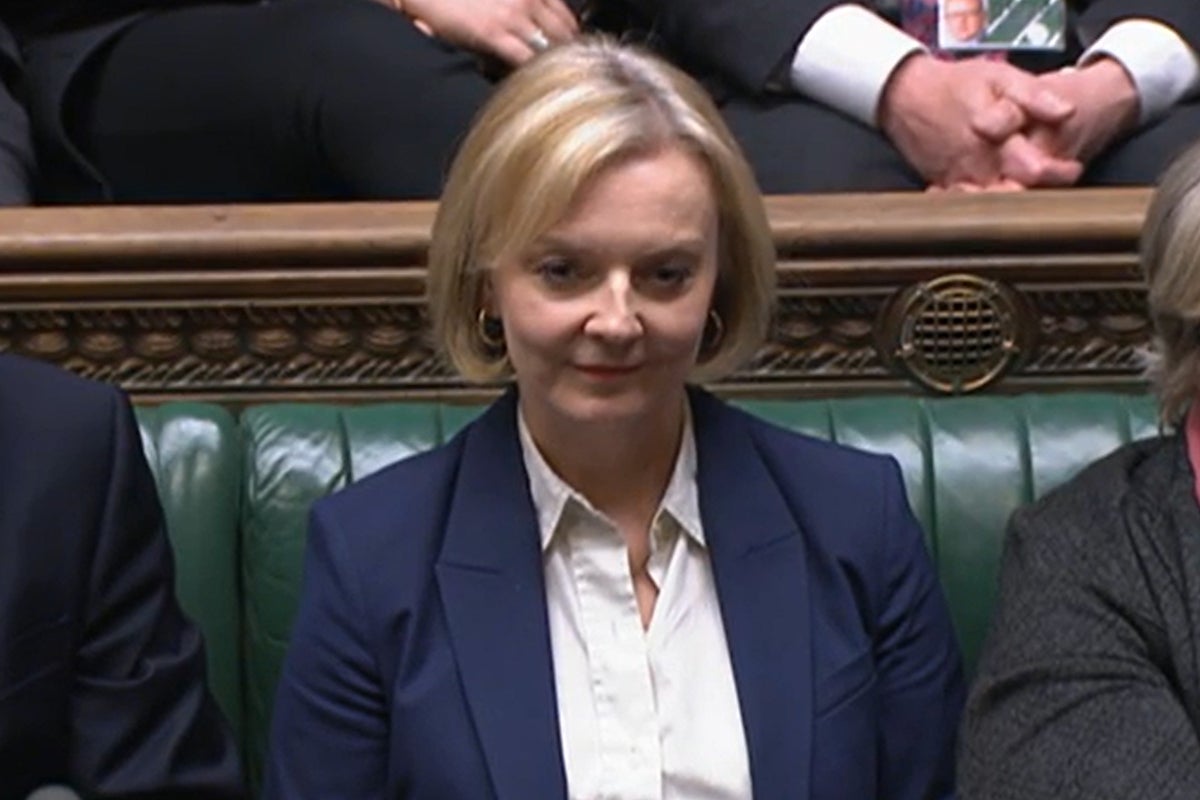
The government's economic policy U-turn will send the UK's taxes to their highest level since the 1950s, economists have said.
The new chancellor Jeremy Hunt on Monday scrapped 60 per cent of Liz Truss's planned tax cuts and pledged to scale back support on energy bills next year.
But researchers at the Resolution Foundation think-tank warned many of the toughest choices for public spending still lie ahead, with the government expected to make cuts to public spending to close a fiscal black-hole.
A typical household will now only see a tax cut of £290 from the budget, mostly because of the scrapping of a planned National Insurance rise. They were previously on course to gain £500.
The richest 10 per cent of households will meanwhile now see a £1,650 tax cut compared to an expect £5,380 windfall.
Torsten Bell, chief executive of the Resolution Foundation think-tank, said Mr Hunt had "junked Trussonomics" to reduce the pressure on the Bank of England to raise interest rates, and on the Treasury to cut spending.
The expected rise in interest rates caused by the tax cuts was expected to wipe out the tax cut gains for many mortgage holders many times over.
As well as scrapping 60 per of the budget's planned tax cuts the chancellor also dumped a planned cut to the basic rate of income tax announced by Rishi Sunak. The government's energy bill scheme will also only run until the Spring.
Ms Truss and her former chancellor Mr Kwarteng had already U-turned on cuts to the planned future rate of corporation tax and a reduction in the top rate of tax for the highest earners – leaving little of the budget intact.
The Resolution Foundation director Mr Bell said: “The speed of this turnaround is stark. This is now very clearly a tax raising parliament, with the tax take set to reach highs not sustained since 1950. The price of shielding the public finances from wholesale gas markets next year is more pressure on households, with the energy price cap now on course to hit £4,000 next April – almost double its effective level today.
“These are tough choices being made by the new Chancellor, that will reduce the scale of public spending cuts set to be announced on 31st October – even more so if they lead markets to reduce the interest rates they charge government for borrowing.
“But, with tens of billions of spending cuts still to come, and a new energy support package needing to be devised, many of Jeremy Hunt’s tough choices still lie ahead.”
Meanwhile economists at the Institute for Fiscal Studies (IFS) warned that "fiscal credibility is hard won but easily lost" and said the tax changes would not be sufficient.
"Today’s announcements won’t be enough, by themselves, to plug the gap in the government’s fiscal plans," said Paul Johnson, director of the IFS.
"Nor will they be enough to undo the damage caused by the debacle of the last few weeks. But they are big, welcome, clear steps in the right direction.
"It is also encouraging that, with most of the tax cuts abandoned, perhaps the most growth friendly of them, the stamp duty cut and the increased annual investment allowance for corporation tax, remain."
He said the chancellor should back up his plan with "a coherent set of well-designed fiscal targets and a credible plan for meeting them".
"Jeremy Hunt will still have to make some scary decisions on tax and spend this Halloween. And it remains hard to see where significant spending cuts could come from. With today’s policy reversals the tax burden is again set to rise and stabilise at an historically high level," he added.
Ms Truss avoided parliamentary scrutiny of his policy changes in the Commons on Monday, instead sending Commons leader Penny Mordaunt out to defend the government's record and approach.
Ms Truss’ budget, which mostly consisted of her leadership election pledges, sent financial markets reeling – with interest rates and the price of government debt surging. The Pound also lost ground against the US dollar, increasing the price of imports at a time of high inflation.







